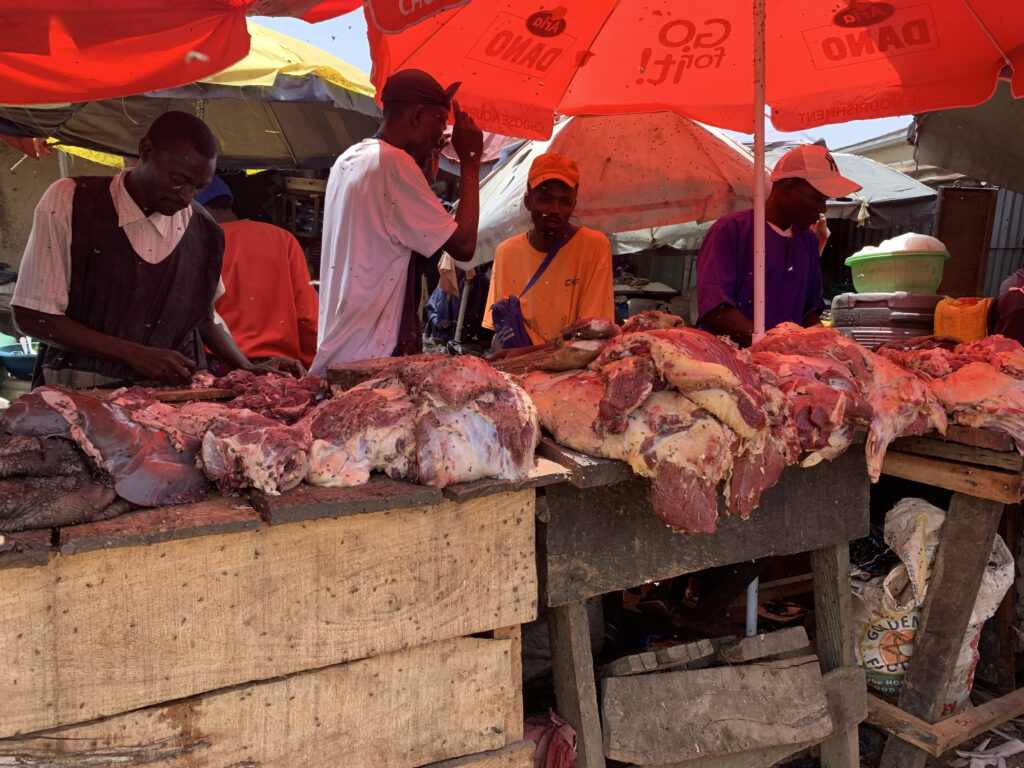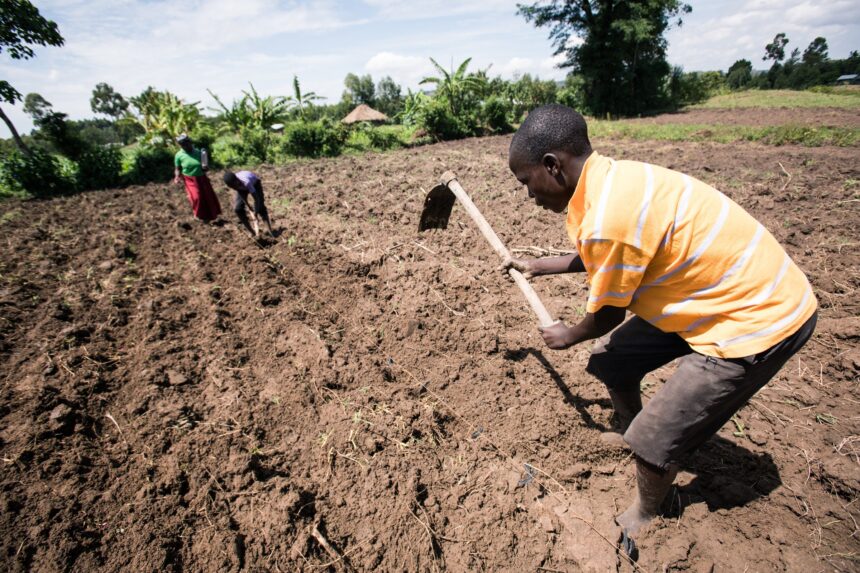Jos, Plateau State, is renowned for its chilly climate – a haven for strawberry farmers like Ms. Rifkyatu Dalyop. The consistent cool temperatures have always ensured bountiful harvests and optimal storage conditions for transporting her produce to distant Lagos.
However, this year has thrown Rifkatu Dalyop and other farmers a curveball. An unprecedented heatwave scorching Africa’s most populous nation has gripped even Jos, traditionally one of Nigeria’s coldest regions. This dramatic shift in weather has severely impacted farmers’ ability to preserve their crops.
“Because of the intense heat,” Ms. Dalyop explains, “the strawberries we harvest now spoil within two days,” adding that the heat has made them unable to supply strawberries to their customers in faraway states, but instead depend on places like Abuja. This rapid spoilage significantly reduces her profits and threatens the viability of her business, and many other residents in the state with a 70% farming population.
Unusual heatwaves
The twelfth largest state in Nigeria, Plateau state in Nigeria’s North Central is one of Nigeria’s coldest states, making it fit to cultivate potatoes, carrots, cabbage, strawberries, and a host of other exotic vegetables and herbs.
But things took a different turn this year with the heatwaves which has not just sent chills down the spines of farmers like Ms. Dalyop but also threatens food security in a country struggling to tackle rising food inflation.
Most states in Nigeria are experiencing an unprecedented heat wave and Jos has recorded a heat temperature of 31 degree Celsius as of the time of writing this report, May 19, 2024.
Tomato and pepper seller Umar Haruna paints a grim picture: “This heatwave is unlike anything I’ve seen before. Previously, my stock could last two to three days before spoiling. Now, it starts going bad overnight!”
Haruna is forced to sell his wilting produce at a significant discount to processors or those who wash and dry tomatoes for later use.
Also, Usman Salman, a butcher for over 20 years, shares similar frustrations. “We used to store leftover meat in the refrigerator after closing. But power cuts render this useless. Even when the fridge has some power, we still find the meat spoiling.”

Salman can lose a staggering 30-50 thousand naira worth of meat (from a bulk purchase of over 100 thousand naira) because customers refuse to buy anything but fresh cuts. He’s forced to sell the day-old meat at a steep discount to food vendors, taking a significant financial hit.
The heat waves did not come without warning. Earlier in the year, the Nigerian Meteorological Agency or NIMET had warned that air temperatures around the North of Nigeria, where Plateau is, had reached 41°C and that it will remain so for a while.
Not always been this way-expert
Jos resident and climate-change specialist Promise Salawu remembers a different Jos.
“In the late 90s, Jos was known for its extreme cold,” Salawu said. “Temperatures dipped as low as 2 degrees Celsius. Now, it rarely gets below 6-7 degrees Celsius .”
Salawu emphasizes the dramatic rise in temperatures. “The hottest periods used to be around 25-27 degrees Celsius. Now, we’re seeing 34, 35, even 36 degrees Celsius. This is incredibly high for a place like Jos.”
Salawu attributes the unusual heatwave to drastic climate change. He also highlights the issue of illegal tree logging within Plateau State, which the government has previously warned about. This indiscriminate deforestation, Salawu argues, is having a detrimental impact on the state’s environment and contributing to the increased heat.
Salawu warns that unless these issues are addressed, the heatwaves may become more frequent and severe, posing significant challenges for Jos and its residents.
Fwangmun Oscar, founder of the Jos Green Centre, adds his voice to the discussion, highlighting deforestation and the lack of green spaces as key factors in the extreme heat Jos is experiencing.
“The construction boom within the Jos and Bukuru metropolis is leading to a significant loss of trees,” Oscar explains. “These new housing developments often trigger indiscriminate tree felling, destroying vital green areas that used to cool the city.”
Salawu, the Jos-based climate change expert emphasizes the urgency of addressing climate change. “Climate change is a reality,” he urges. “It’s already having a severe impact, and it’s likely to worsen in the future. We all have a role to play as individuals in mitigating the effects of climate change.”
And until that is done, farmers like Ms. Dalyop will continue to pay the price through reduced sales and spoiled goods.





